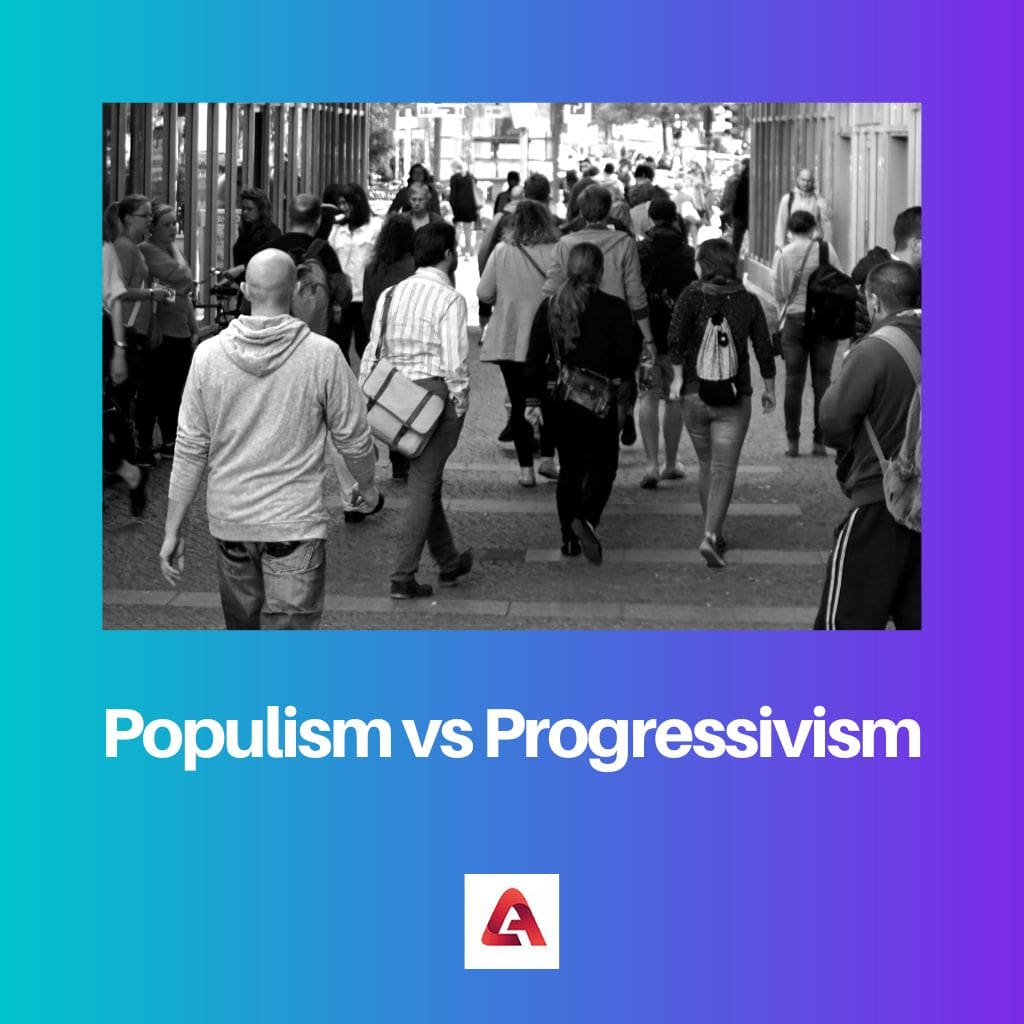Since a country is run by its people, it is important to understand the value of equality and democracy in the growing world.
A country is not run through just a written set of rules and regulations, but some issues can only be curbed through people’s representation.
Although the provision of equality is mentioned in bold in the constitution, few classes face discrimination.
There are different political approaches of the government and people regarding the welfare of society.
Sometimes few policies face retaliation due to injustice towards one section of society. The principles of democracy, equality, or equity are questioned by people who are probably facing injustice within the country.
Sometimes it is the situation’s demand, as one beneficial policy for an entrepreneur class might put farmers into misery. An equitable policy should benefit all sections rather than putting effort into the privileged class.
Key Takeaways
- Populism is a political ideology that emphasizes the interests and concerns of ordinary people, pitting them against an elite or established power structure.
- Progressivism is a political and social movement that seeks to reform society by advocating for change and improvements in social justice, environmental protection, and economic fairness.
- Both populism and progressivism are political ideologies, but populism focuses on championing the general population’s needs against the elite. In contrast, progressivism aims to address societal issues through reform and change.
Populism vs Progressivism
Populism was a political movement that emerged in the late 19th century as a response to the perceived domination of American politics by big business interests. Progressivism was a political movement that emerged in the early 20th century as a response to the social and economic problems caused by rapid industrialization.

Comparison Table
| Parameters of comparison | Populism | Progressivism |
|---|---|---|
| Effect on Democracy | Violates democracy | Advocates democracy |
| Principles | Divides society | Unites society |
| Existence | Always prevailed in society | Emerged as need |
| Nature of approach | Biased approach | Unanimous approach |
| Impacts on society | Brings conflict | It brings peace and prosperity |
What is Populism?
Populism is a political approach wherein populists try to make a difference between common people and relatively higher-class ‘elites. It is seen as antidemocratic and a permanent shadow of representative politics.
It divides society wherein ‘us’ is the elite class and ‘them’ is the common people. The reason behind this ideology is the political approach is made by and for the elite social class.
The domain of populism is not only in the hands of right and left groups but also in the hands of people or any group who faces problems with powerful segments.
It does not give a holistic approach towards the development of society; it works within the borders of the biased society aiming for the welfare of society.
Populism aims for a developed society, but the people of the upper sections are unwilling to eliminate the difference within society, predominantly prevailing based on the wealth of people, which creates social problems.
Populism is conflicting due to its biased approach, and certainly, it is not new to society; it has prevailed since the establishment of human society, making society biased and corrupt.
The term ‘Populism’ gained popularity when the American populist movement started in the 1890s. Although it always prevailed in society, the term became popular with the American movement, a farmer movement fighting for income inequality.

What is Progressivism?
Progressivism is a political philosophy advocating social reforms based on progress in advancement, education, income, etc., with a more holistic approach.
Progressivism aims to welfare programs that serve to raise the minimum quality of life across all sections of society. It makes people work together beyond the bars of the unequal status of wealth, caste, class, religion, etc.
There are no or fewer chances of conflicts; most probably, the only challenge progressivism faces are corruption, wherein people are willing and doing work together to make a better society, but some elements would try to fill their pockets in the first place.
Progressivism desires to give all ordinary people social and political representation and seeks to establish equity across the classes.
Progressivism can be synonymous with accepting reforms. It always welcomes reforms in political and social amendments to improve the human condition in modern society.
The origin of progressivism can be seen during the period of enlightenment in the 18th century in the western world with the commencement of the industrial revolution.

Main Differences Between Populism and Progressivism
- Populism is a biased political approach toward the growth of society, whereas progressivism is a unanimous approach to the growth of society.
- Populism divides society into ‘us’ and ‘them.’ On the contrary, progressivism unites the divided society.

- https://muse.jhu.edu/book/22551
- https://digitalcommons.law.yale.edu/cgi/viewcontent.cgi?article=1267&context=fss_papers

The analysis of populism and progressivism raises thought-provoking questions about their impact on social dynamics. However, the article tends to overlook the historical context and complexities associated with these political ideologies, neglecting their nuanced nature.
I understand your concern, but I find the article’s insights to be illuminating in framing the broader implications of these ideologies. It offers a valuable perspective on the historical and contemporary relevance of populism and progressivism.
I agree with your observation about the complexities of these ideologies. It’s crucial to delve deeper into the historical nuances to understand the intricate landscape of populism and progressivism.
I appreciate the article’s balanced representation of populism and progressivism, offering an informed perspective on these political ideologies. The analysis emphasizes the need for a holistic approach to societal development and welfare.
I couldn’t agree more with your observation. The article’s focus on promoting equity and unity within society is particularly noteworthy and aligns with the fundamental principles of democracy.
This article presents a comprehensive comparison of populism and progressivism, highlighting their implications for democratic principles and societal welfare. The analysis is thought-provoking, advocating for the importance of unity and social reforms.
I appreciate the detailed examination of these political ideologies and their effect on society. It encourages critical thinking and reflection on the broader implications of populism and progressivism.
This article effectively highlights the core principles and nature of populism and progressivism, providing readers with an insightful analysis of these political ideologies. The focus on societal impacts and historical context engages readers in a meaningful manner.
The thought-provoking insights provided in the article are indeed commendable. It encourages readers to contemplate the broader implications of populism and progressivism on societal development.
I concur with your assessment of the article. The historical and societal context presented in the analysis offers an intellectually stimulating exploration of populism and progressivism.
While the article effectively delineates the differences between populism and progressivism, it warrants further examination of the historical context and societal implications of these political ideologies. A more comprehensive understanding of their complex nature is essential for readers to develop a nuanced perspective.
I respectfully disagree with your perspective. The article’s insights into the core principles and societal impacts of populism and progressivism are both comprehensive and engaging. It fosters a deep understanding of their historical and contemporary relevance.
I share your viewpoint and believe that delving deeper into the historical context of populism and progressivism would enhance readers’ comprehension of these political ideologies. A more detailed exploration of their societal implications will provide a holistic perspective.
This article provides an insightful analysis of the differences between populism and progressivism, emphasizing the need for unity in society and standing up for social justice. The author offers a compelling argument for the importance of democratic principles and equality for all individuals.
I couldn’t agree more with your interpretation of the article. The distinction between populism and progressivism is clearly outlined, shedding light on the impact of these ideologies on society. Well done!
This article provides an intellectually stimulating comparison between populism and progressivism, raising pertinent questions about their effects on democracy and societal unity. The author’s insights are commendable and invite readers to engage in thoughtful reflection.
I wholeheartedly agree with your assessment. The article’s emphasis on invoking critical thinking and dialogue surrounding populism and progressivism is essential for fostering a deeper understanding of these political ideologies.
The article’s nuanced analysis of populism and progressivism contributes to a compelling discourse on the importance of democratic principles and societal welfare. The comprehensive comparison offers a valuable perspective for readers to consider.
While the article provides a clear distinction between populism and progressivism, I believe further emphasis should be placed on the potential drawbacks of progressivism. It’s essential to consider the limitations associated with social reforms and the challenges of implementing equitable policies across diverse societal classes.
I respectfully disagree with your viewpoint and believe that the article effectively communicates the benefits of progressivism. Embracing the significance of social reforms and equity is crucial for advancing society towards a more inclusive and fair future.
The articulation of populism and progressivism is thought-provoking and prompts readers to contemplate the underlying complexities of these political ideologies. The intellectual depth of the analysis fosters a meaningful exploration of their societal impacts and implications for democratic principles.
This article offers a compelling analysis of populism and progressivism, leveraging historical and societal contexts to showcase the broader implications of these political ideologies. The author’s insights are profound and engaging, encouraging readers to critically examine the impact of these ideologies on democratic principles and societal welfare.
I appreciate your insightful assessment of the article. The rich historical and societal context presented in the analysis provides a holistic understanding of populism and progressivism, inviting readers to delve deeper into their societal implications.
The depth of analysis presented in the article is truly commendable. It prompts readers to engage in meaningful discourse on the societal and democratic relevance of populism and progressivism, fostering a deeper appreciation for the complexities of these political ideologies.